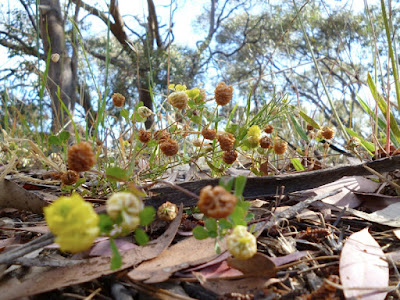Permacultural neopeasantry and people care
Sunday, July 1, 2018
Here is my Melbourne Free University (MFU) talk, in video (audio) form:
If you're reading this in an email, you'll need to click through to see the link.
A few thoughts since I gave this talk, where I became the subject of an unproductive ambush:
While the Left attacks itself over technicalities, different lifeways and language use – the very things that herald the potential for diversity – the Right runs away with the ball, laughing hysterically all the way to the banks. How we treat one another is key to a transition from dominating power relationships that aim to hurt and divide and towards a culture of true diversity.
The most destructive part of question time in my MFU talk was the product of a few people coming to the gathering with a will-to-violence that disallowed the possibility for deep listening. This is how violence establishes itself, it feeds on reductionism.
I wrote about the project of people care in Perma/Culture: Imagining Alternatives in an Age of Crisis. My chapter is called Reclaiming accountability from hypertechnocivility, to grow again the flowering earth (you can read it below), and it outlines approaches to understanding how violence, especially in language, be it privileged or retaliatory (or somewhere on the hierarchical scale), is a force for the destruction of the other who is not living our values. The ecological ramifications for humans endlessly attacking one another are of course innumerable. Business thrives on such hatred, which in turn creates assaults on ecology because consumption often ramps up when people are unsettled, shamed, angry, desperate or self-loathing.
To include the potential of the other in one's frame is a practice of understanding through deep listening. Buddhists and others might say it's the heart where compassion resides, but it really seems apparent now that the relationship between the enteric biome (of the gut) and the cortex-limbic biomes (of the brain) are where our social selves speak and act from.
re:)Fermenting culture (audio version)
Saturday, June 30, 2018
Ruffling the feathers of KeepCup scholarship
Thursday, April 19, 2018
Hi Rachel, we are that family from Daylesford you mention. We would have been open to being interviewed, even a visit, it’s a pity you only refer to a new.com.au article as your main reference to us.
In this writing you attempt to disappear our ancestors. Of course, ‘neo’ locates our ‘fessed up privilege in choosing to be peasant-like, but ‘peasant’ is our heritage, our families, our pre-industrial past prior to the enclosures and the ‘primitive accumulation’ of our ancestral lands.
There is both an everyday intimacy and lived-politic that we’re advancing by championing this term. Our politic goes like this: If people can again have access to land they can produce alternative, land-conscious economies. They can decouple themselves from the giant wrecking ball global economy and potentially live a carbon-positive lifeway. We are modelling this politic every day.
We don’t deny we’re on Dja Dja Wurrung country, we live that reality. We also don’t deny our own indigenous-peasant past and we draw on it to transition from what we call hypertechnocivility.
Ultimately, we are neopeasants who apply permacultural principles to our home and community economies to further become accountable mammals of place, and this constitutes our practice of art, our culture making and our corporeal forms of feminism.
Your article strikes us as another act of urbane violence directed at an imagined and clearly poorly understood target. We question your scholarship.Read more...
Radical economy making - the imperatives of productive home economies for the reestablishment of ecological cultures of place
Monday, February 12, 2018
For the Radical Homemakers, wealth and poverty are determined by a different paradigm. One of the first determinants of "impoverishment" was a lack of personally "owned" time – life-hours lost to participation in soul-sucking work pursuing excessive desires and, ultimately, leading to neglected and disintegrated relationships. Other signs of impoverishment included the inability to access nourishing food, to get adequate rest, to properly nurture their relationships, or to live an ecologically responsible life. Understanding this new view of poverty, it becomes clear that the definition of wealth is far more complex than the mere accumulation of cash. In fact, in the eyes of most Radical Homemakers, money has little, if anything, to do with their perception of enduring wealth. – Shannon Hayes, Radical Homemakers: reclaiming domesticity from a consumer culture, 2010.
re:)Fermenting culture: a return to insight through gut logic
Sunday, November 12, 2017
Walked-for 'free tucker' and walking 'knowledge is free'
Thursday, June 4, 2015
I wrote my doctorate paid for by public money, so (in memory of Aaron Swartz and in the spirit of Creative Commons), I make it available here free, to the public. I encourage all other scholars to do the same with their research, regardless of what copyright laws unethically demand otherwise. #knowledgeisfree.
Everything you've learnt is just provisional; it's always open to recantation or refutation or questioning. The same applies to society. — Aaron SwartzRead more...
Excerpts from Dave Jacke's Daylesford talk
Friday, March 15, 2013
Edible forest gardener and permaculturalist, Dave Jacke, came to Daylesford for a brief talk last Wednesday while touring the country giving workshops on temperate climate food forestry.
Edible forest gardens afoot
Thursday, March 7, 2013
 |
| Poster by Ian Robertson |
Dave Jacke, author of Edible Forest Gardens, is coming to Daylesford to speak on Wednesday March 13. Jacke is a permaculture pioneer who has taken the Forest Garden concept beyond it tropical origins showing it can be adapted to temperate climates. This talk is a unique opportunity for local permaculture practitioners and anyone interested in ecological solutions to hear Dave Jacke speak while he is in Central Victoria. More
DAYLESFORD will soon boast a five-acre food forest, thanks to a partnership between Daylesford Community Food Gardeners, Daylesford Neighborhood Centre and Daylesford Secondary College. The food forest will be built on permaculture principles and will boast more than 60 species of food producing plants, a poultry system and bees. Daylesford Community Food Gardeners co-ordinator Patrick Jones said the Daylesford Secondary College Council had already approved plans and the project was now seeking funding. The food forest will be planted at Daylesford Secondary College and will be a fifth community garden for Daylesford. Read on.Read more...
Reclaiming education as ecological knowledges
Saturday, December 15, 2012
An essay that includes excerpts from my interview with David Holmgren
Saturday, September 1, 2012
Another clear picture to draw inspiration from...
Thursday, March 1, 2012
Milkwood Permaculture co-founder, Nick Ritar, puts together a well-structured argument to help fight human complacency, idiocy and anxiety in an age of crises.
Nicole Foss on resilience and financial collapse
Friday, February 17, 2012
Hepburn Relocalisation Network and Sustainable Hepburn Association (SHARE) last night hosted Canadian speaker Nicole Foss. A theorist and practitioner, Foss is well across looming energy, economics, psychology, sustainability (the real kind – not just economic), security and climate conundrums. Here's a slide from her talk:
And here's a wee bit of footage of Foss and David Holmgren fielding questions in the town hall last night.
Read more...
Gardens, ecologies and reclaiming the sensible
Sunday, January 15, 2012
Daylesford Community Food Gardeners had a big day yesterday of multiple events to do with transition, gardening, music and global ecological crises. We blogged some of the activities on the DCFG blog just free food.
Read more...
After Blake
Monday, December 12, 2011
The story of Daylesford Community Food Gardeners first nine months demonstrating how a guerilla action at one garden developed into three community gardens throughout the town.
Permaculture Principles
Wednesday, November 30, 2011
8. Integrate rather than segregate.
Read more...
Spring Garden
Wednesday, November 9, 2011
We went to the garden of love
Saturday, September 24, 2011
Community gardeners, poets and readers met at the new community garden Rea Lands Park today to share poems and food in the sunshine.
Read more...

































